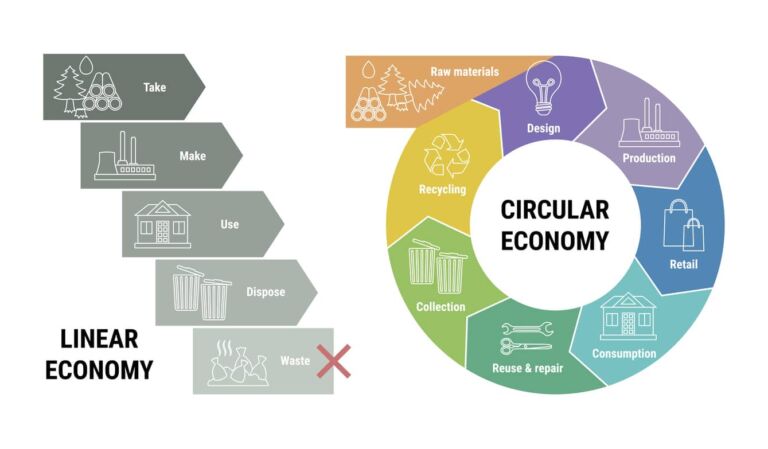Traditionally, consumers have prioritized price, convenience and value when making purchasing decisions, but this is rapidly changing. There is growing research indicating that we’re on the cusp of a significant shift in consumer buying patterns where brands that prioritize environmental sustainability will possess a tremendous competitive advantage over companies who fail to make sustainability a core component of their business model and corporate values.
The increased prevalence of climate-related disasters and the impact of the COVID-19 pandemic has accelerated this shift in consumer behavior. These factors have caused a growing number of individuals to prioritize sustainable products and brands, as well as brands that promote socially responsible values, when making purchasing decisions. In fact, we’re rapidly reaching the point where sustainability will be one of the most important factors driving purchasing decisions for the majority of Americans.
As a business owner, it’s critical to prepare for this shift in consumer behavior to ensure you don’t get left behind in the next few years. Keep in mind that it’s not sufficient to simply promote sustainable practices. Your business must also be able to effectively communicate the ways in which you promote sustainability to ensure consumers connect your brand with these values and practices.
Research Supports this Shift in Consumer Buying Decisions

The same study also found that purpose-driven consumers are much better brand ambassadors than consumers prioritizing value. Purpose-driven consumers introduce friends and family to the brands they support more frequently than value-driven consumers, with 58% of purpose-driven consumers indicating they regularly offer these recommendations. As a result, demonstrating the ways your brand aligns with the values of consumers can result in lucrative, long-term relationships with individuals that can help you grow your customer base over time.
Another study conducted by the retail inventory technology company Sensormatic Solutions found similar evidence that brands who promote their sustainability efforts are gaining a competitive advantage:
- 80% of US consumers consider sustainability when making purchases
- 80% of retailers believe their sustainability efforts have increased customer loyalty
- 54% of consumers read about a brand’s sustainability initiatives when making purchasing decisions
- 70% of consumers indicate they would change their shopping habits if they found out a brand wasn’t operating sustainably
Not only are consumers valuing sustainability more than ever, but they’re also willing to pay for these products. A recent survey by the Business of Sustainability Index found that 66% of US consumers are willing to pay more for sustainable products compared with less sustainable options offered by competitors. This figure is more pronounced with younger consumers, with 80% of Americans between the ages of 18 and 34 saying they’re willing to pay more for sustainable products.
In addition, this survey found that a brand’s ability to communicate their sustainable practices is important in these purchasing decisions. Approximately 50% of consumers said clear language on products detailing their sustainability is important, and 46% of consumers also say having a third-party or independent source confirm these sustainability practices is important in their decision making. Furthermore, 73% of consumers said they’d sign up for a company’s loyalty program if it helped reduce the environmental impact of their purchases.
Younger Consumers Are Driving This Trend

According to Harvard Business Review, Millennial and Gen Z consumers are 15% more likely than older generations to spend more money with a brand and choose it over its competitors when they rate the brand highly on humanity. In addition, 75% of Millennials consider sustainability when they make a purchase, compared with 66% of the general population. Moreover, 90% of Gen Z consumers interviewed for a recent survey stated they’ve purchased a sustainable product in the past six months.
The fact that Millennials and Gen Z consumers are driving this shift in purchasing behavior is significant, and it’s a clear indication that this trend is likely to continue over the next decade. Gen Z’s influence on consumer behavior will continue to increase as the youngest members of this generation become adults. In addition, the Harvard Business Review report indicates that the purchasing power of Millennials and Gen Z will surpass the purchasing power of Boomers by 2030. Furthermore, Gen Z will represent 27% of the world’s income by 2030, and they are expected to surpass the percentage of income possessed by Millennials by 2031.
Businesses who fail to align with the sustainability ethos valued by these younger generations can expect to struggle to maintain their market share as we reach 2030. In order to avoid this fate, it’s critical for businesses to pivot towards sustainability now.
Embracing the Circular Economy Will Help Elevate Your Sustainability Practices
To thrive in this changing consumer landscape, your business must embrace sustainability and appeal to the growing number of purpose-driven consumers who now hold the largest market share. One of the best ways to do this is to shift your business model from a linear economy to a circular economy.
Traditionally, businesses have operated as a linear economy. In this model, businesses take materials from the earth to manufacture their products. Consumers then purchase these products and use them until they wear out, eventually throwing them away as waste.
A circular economy, on the other hand, takes steps to prevent this waste from being produced. In this model, processes such as reuse, refurbishment, recycling, maintenance, remanufacture and composting are implemented by businesses to keep these materials in circulation and reduce the waste generated by consumers. As the trend towards prioritizing sustainability in purchasing decisions continues to grow, it’s likely that more and more companies will shift their model towards a circular economy that keeps the materials they use in circulation as long as possible.

Leveraging an Emphasis on Sustainability to Grow Your Business
It takes more than sustainable practices to appeal to the changing purchasing patterns of the modern consumer. You must also make this a core part of your brand and communicate this to your target audience to gain their trust. There are several important steps to take in order to connect with today’s purpose-driven consumers:
- Know your customers
- Communicate your values as part of your branding
- Embrace transparency
Know Your Customers
It’s important to identify the values and practices that are most important to your customers. When you know what motivates them to support your purpose, you can begin to transform your operating models to deliver the sustainability your customers value.
Communicate Your Values as Part of Your Branding
Once you’ve established sustainable practices and adopted socially conscious values that your customers expect from the companies they support, you must make sure your brand messaging aligns with these practices and values. It’s important to communicate these ideals in all your marketing efforts to raise awareness of the steps your business takes to foster a more sustainable solution.
Embrace Transparency
Communicating these ideals in your brand messaging is important, but purpose-driven consumers expect more concrete information in order to trust that you provide the sustainable solutions they demand. These consumers often spend a significant amount of time investigating the brands and products they support. When researching your company, they will look for hard evidence to demonstrate your use of sustainable solutions.
The more transparent you are when providing this information to consumers, the more likely you are to gain their trust. When this occurs, you’ll be able to cultivate a loyal customer base that will also serve as powerful brand ambassadors to others in their network who share their socially and environmentally conscious values.
A Real-Life Example of a Company Embracing Sustainability

Vaniman operates under a “repair, don’t replace” business philosophy. As part of this approach, all their machines are designed to:
- Last for decades, using metal cases and structural pieces
- Have any parts that can wear out be replaceable by the user
- Have all non-wear parts made available for replacement in the event of damage our misuse
As new motors, switches and other technologies become available, Vaniman upgrades their replacement parts with newer, better units while ensuring they are compatible with older models, including the original Vaniman machines made decades ago. For example, if a new motor is designed that is more powerful and efficient, Vaniman will also make an adaptor bracket to allow the new motor to retroactively replace a motor in an existing machine designed 20 years ago.
This business philosophy creates a circular economy that keeps Vaniman machines out of landfills. A typical light industrial dust collector with a five-year lifespan manufactured by a competitor will create 3 cubic feet of landfill waste every five years, and 12 cubic feet of waste every 20 years. A similar unit manufactured by Vaniman will only need replacement brushes and potentially a replacement motor over time. As a result, their machines produce less than 1/8 of a cubic foot of landfill waste in that same 20-year period. This equates to 1% of the volume of waste produced by their competitors every 20 years.
In addition, this model reduces fuel consumption and transportation costs since there is no need to deliver new units to customers every five years.
Vaniman’s sustainability efforts are making a significant impact on our environment and as an increasing number of customers prioritize these initiatives over the next decade, they are primed to experience a strong competitive advantage over other businesses in their industry.
These sustainability practices aren’t unique to Vaniman’s products. There are ways to adopt sustainable business models in just about any industry. If your company is committed to prioritizing these initiatives and living these values, you’ll find that the growing number of purpose-driven consumers in our country will come to view you as a trusted brand that they want to support and recommend to others.
